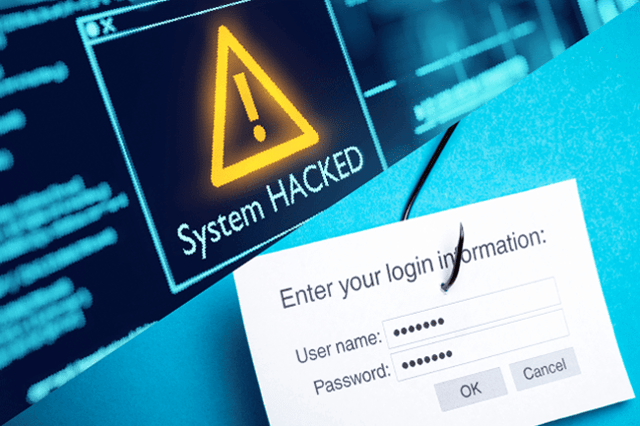CYBER SECURITY | 3.5 MIN READ

The cyber threat landscape is constantly evolving, which means you need to stay on your feet to continue to be well-protected. Ransomware and social engineering both pose cyber threats but are commonly confused. Read on to discover the similarities and differences between ransomware and social engineering so you can know how to stay protected.
How Are They Different?
In simple terms, ransomware is a type of malware that encrypts your files, making them inaccessible unless you pay a ransom to the hacker. Social engineering relies on deception to trick a victim into clicking a link or downloading a file that then lets a hacker into their network.
Unlike social engineering, ransomware doesn't have to rely on trickery to harm a victim. A hacker can gain access to a victim's network through many other avenues, whether it's figuring out weak passwords or finding security gaps in their network.
However, once a hacker gains access to a victim's computer, whether it's through a social engineering scheme or another tactic, the outcome can have dangerous consequences for the victim.
RELATED: What is Social Engineering? [Types, Tips, and Prevention]
How Can I Protect Myself?

Stay Away From Suspicious Links and Websites
Though some websites and links might make great promises, follow this simple rule - if an offer that a website or link is making sounds too good to be true, then it probably is.
Additionally, when links are emailed to you from external sources, think twice before clicking those links, even if they seem to come from a legitimate source. For instance, a common social engineering tactic involves phishing emails.
With phishing, a hacker sends a legitimate-looking email containing a malware-loaded link to an un-suspecting victim. Sometimes, this email can seem like it's coming from your bank or the government.
For instance, a victim could receive an email from what looks like their email provider saying that they need to click on a link to upgrade the storage for their inbox.
Instead of clicking the link, a safer approach could be to attempt to log into their email provider's website to upgrade the storage. If the victim can't upgrade storage this way, then the link is probably fake.
RELATED: How to Spot a Phishing Attack
Find and Fix Network Security Gaps
Network scanning tools can help you identify security gaps in your network, such as open ports. Security gaps can be hiding everywhere, whether it's open ports or weak passwords that can easily be cracked by a hacker.
Identifying where your network's security lacks can show you how you need to address those gaps. Basic steps can be taken to ramp up your cyber security efforts, whether that means installing a firewall or anti-virus software.
Printers and copiers can come with a host of security gaps that you may not know about. Turning certain features off on your printers and copiers or upgrading to newer and more secure ones can keep your data better protected from hackers.
Consider Managed IT Services

While installing a firewall or an anti-malware software is a good first step in building a solid cyber security infrastructure, you can still be left extremely vulnerable in the event of a cyber attack.
Robust cyber security systems with multiple layers of protection, including software, hardware, and trained IT professionals to monitor and patch up your network, ensure that your network and the private information it holds stay safe.
If you're a business, consider managed IT services as a way to holistically protect your network from hackers. They install and maintain up-to-date security hardware and software, educate employees on cyber security best practices, and resolve any security issues that arise.
By implementing multiple security measures, you reduce the chances of having to become reactive in the event of a cyber attack. This can save you money from potential data breach lawsuits and reduce downtime in the event of a cyber attack.
Partner with a third party company who comprehends the unique risks associated with your industry so you're well-protected in the event of a cyber attack.
Posted by Erica Kastner

Erica Kastner is a lead Marketing Specialist at Standard Office Systems as well as a University of Georgia graduate. She aims to use her passion for problem-solving to help businesses understand how to better leverage their network infrastructure.

